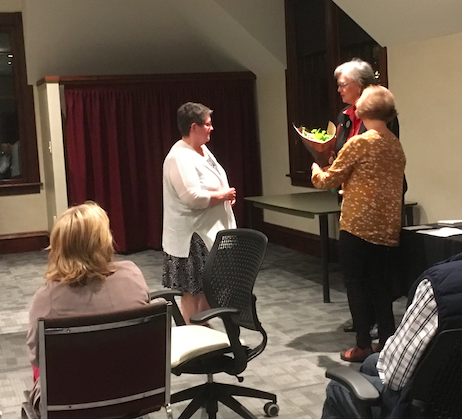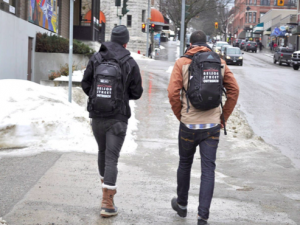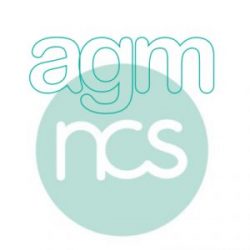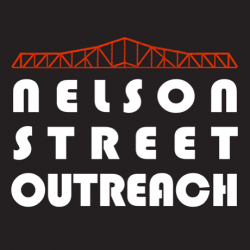Transition House | Elder Support
Would you like to connect with an Elder to talk about traditional teachings and spiritual healing practices?
The Metis Elder at Aimee Beaulieu Transition House is here to offer you support during this time of crisis. She is only a phone call away, and is deeply committed to sharing her knowledge and offering culturally based support.
· Receive culturally responsive support
· Get practical help
· Clear your head & your heart
Our elder is available by phone, one evening per week. You can reach her by calling our confidential crisis line at 250.354.4357 and leaving a safe number for her to return your call.
Annual General Meeting Annual Reports and Financials
The NCS Society AGM was held September 25th
In the Chamber of Commerce Board Room
at the Train Station in Nelson.
We acknowledge that the land upon which we gathered this evening and
upon which Nelson Community Services offers its services
is the traditional territory of the peoples who have lived here for thousands of years —
the Ktunaxa, the Sylix, and the Sinixt.
We respect and honour all our relations.
Guest Presenter: Ann Harvey, the Coordinator of the Nelson Committee on Homelessness and the developer of the Report Card on Homelessness, described in more detail the findings on youth homelessness in Nelson.
We invite you to read our reports and view our financials…
Agenda and Committee Reports
Annual Report
Financial Statement

We also celebrated several of our staff for their years of service with NCS. A special recognition went to Pat Hendrickson who completed 30 years of dedicated service with Nelson Community Services!
Nelson Street Outreach Evaluation Report
Downtown Nelson Street Outreach
Year One Pilot Project
EVALUATION REPORT
By
Lynda Dechief, M.Sc.
Equality Consulting
250.352.0011
lynda@equality-consulting.ca
Homelessness Prevention Worker
Key Job Duties and Responsibilities
-
provide housing search support and tenancy support to people who are homeless or at-risk of homelessness. Includes providing support, advocacy, and referrals to other appropriate community-based support services, accompaniment to appointments, service planning, and case coordination; regularly liaise with potential referring organizations
-
provide life skills training, as appropriate, to help maintain housing
-
provide education and support to landlords on housing at-risk individuals
-
compile and enter data into BC Housing’s database and agency reporting
-
administer the rental supplements portion of the program for qualifying individuals
Hours per week: 14
Union Wage Grid 14: $22.93/hour
Closing Date: As soon as position is filled
Resumes and Letters of Interest should be sent to:
Rona Park, Executive Director
rpark@servicesfyi.ca
Nelson Community Services
JOB DESCRIPTION
JOB TITLE: HOMELESSNESS PREVENTION WORKER
Reports to: Youth Services and Housing Program Manager
Classification: Integrated (Program Coordinator 2/Adult, Youth and/or Child Worker)
Grid Level: 14
Effective Date: June 2013
Last Updated: November 2017
Union: BCGEU
Job Summary: The incumbent in this position provides support, education, and practical assistance to adults who are homeless or at-risk of homelessness with the aim of preventing the cycle of homelessness.
Duties and Responsibilities:
1. Plans and develops the program in consultation with the supervisor; plans and implements all program activities.
2. Formulates program policies and procedures and evaluates the program in consultation with the supervisor.
3. As and when needed, participates in the recruitment and selection process for practicum students and/or program volunteers; orients and determines the need for and provides training to students and/or volunteers; and supervises their work by performing such duties as assigning work, providing feedback on performance, and participating in performance evaluations.
4. Promotes public awareness of and support for the program by performing duties such as producing promotional materials and attending community events.
5. Conducts housing priority needs assessments with four priority populations, as per the funding contract, and establishes Service Plan goals and interventions.
6. Conducts safety assessments including the development of safety plans as required.
7. Connects individuals to appropriate housing and support services including accompaniment to appointments; makes referrals to other services as appropriate.
8. Liaises with community service providers, professionals, and landlords to coordinate service provision, facilitate referrals to the program, and represent the program in external events.
9. Provides follow-up support to individuals and maintains ongoing relationships to ensure stable housing.
10. Provides landlord support, education, and conflict resolution between program client and landlord to prevent housing breakdown, where possible.
11. Implements the Integrated Case Management approach to coordinating, evaluating, and ensuring consistent services for clients.
12. Provides life skills training and support (group or 1:1) to help clients maintain a tenancy, health, and employment.
13. Processes Rental Supplement applications; distributes funds and maintains accurate records in collaboration with a supervisor.
14. Adheres to the funder’s standards, policies, principles, and deliverables as per the funding contract.
15. Maintains client file records and online databases according to Agency policy and standards, as well as contractual requirements.
16. Compiles and submits program data and outcome reports as required by funders and the Agency.
17. Attends regular supervision with the program supervisor, including an annual performance review and development of a training plan; attends agency staff meetings; attends local peer support/case consultation meetings; and attends regional peer support meetings, as time permits.
18. Participates in professional development and training relevant to this program area.
19. Performs other related duties as required.
Qualifications:
Education:
Diploma in the human services or a related field or the equivalent combination of education, training, and experience.
Experience:
A minimum of two (2) years’ recent, related experience in working with marginalized and vulnerable adults.
Additional Skills:
1. Proven knowledge, skills and experience in providing support and advocacy to marginalized and vulnerable adults.
2. Working knowledge of the dynamics and impacts of homelessness.
3. Competent in working with individuals from diverse cultural backgrounds.
4. Proven skills in conducting safety assessments and safety planning.
5. Proven skills in group development and facilitation techniques.
6. Well-developed interpersonal, oral and written communication skills.
7. Ability to work cooperatively and collaboratively with co-workers, other community professionals, and the broader community.
8. Good organization, time, self-care, and general work management skills; an ability to work well independently and in a team environment.
Other Information:
1. Must be willing to work flexible hours to meet program demands.
2. Must hold a valid First Aid Certificate.
3. Must hold a valid BC Class V Driver’s license and have access to a safe, reliable, well-maintained, clean vehicle with appropriate insurance.
4. Must carry the agency-supplied cell phone, programmed to emergency numbers, during working hours.
Nelson Street Outreach Donations

Ryall and Jeremy
Ryall and Jeremy, our Street Outreach Workers, interact directly with the Nelson “street culture” people, helping them to identify their immediate needs and plan a way forward.
 Anticipating another cold winter in Nelson, donations of new gloves, mitts, hats, scarves, and socks are needed.
Anticipating another cold winter in Nelson, donations of new gloves, mitts, hats, scarves, and socks are needed.
Donations can be dropped off at Nelson Community Services office, Suite #201 – 518 Lake Street
Making a cash donation through CanadaHelps will let us purchase other items of need for this program.

Read more about NELSON STREET OUTREACH > > >
WOMEN’S HEALING JOURNEY
This is a therapeutic group for self-identified women who are ready to embark on a healing journey around the effects of experiencing sexual, emotional, or physical abuse in childhood and/or adulthood.
In the group you will be exploring topics such as education around abuse and effects of abuse, boundaries, self-esteem, trust and intimacy.
This is a closed group and pre-screening is required.
Supports for childcare and transportation are available. Maximum 10 participants.
Check back fall 2016.







